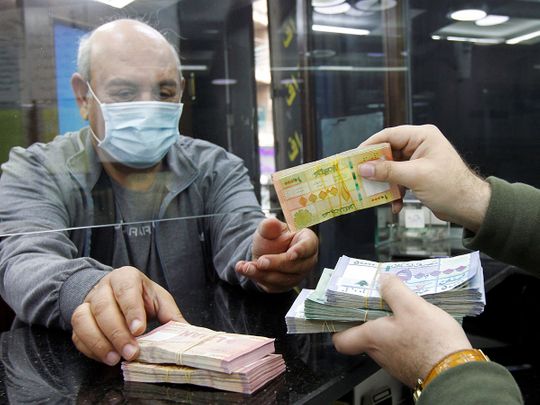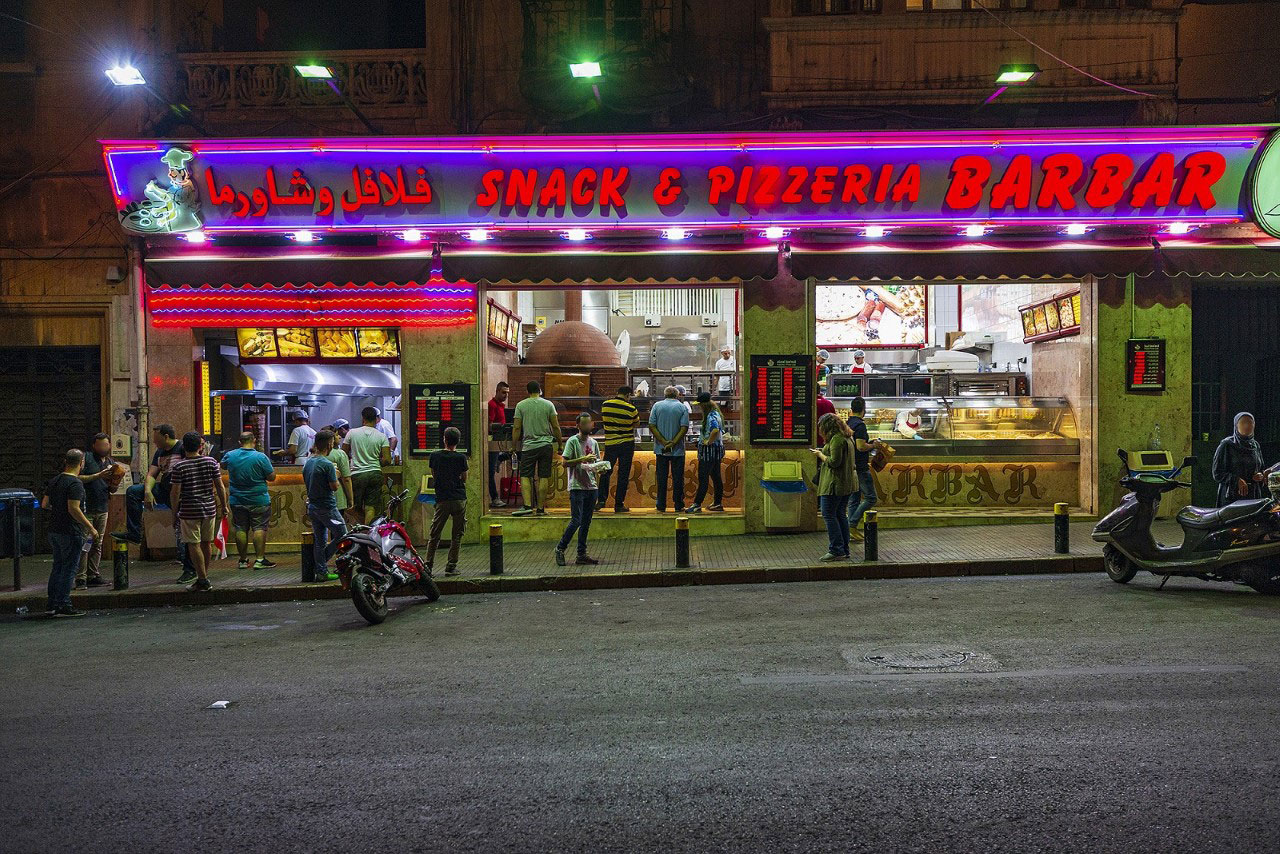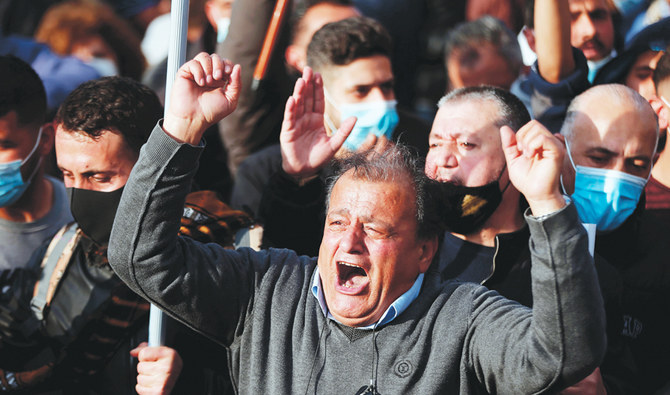by aljazeera.com -- France’s foreign minister has cranked up pressure on Lebanese leaders to form a government, urging them in personal phone calls for an immediate halt to what he called “deliberate obstruction” that is driving the country towards collapse. Jean-Yves Le Drian called Lebanese President Michel Aoun, acting Prime Minister Saad Hariri, and parliament speaker Nabih Berri and deplored the seven months of political deadlock that is worsening Lebanon’s economic crisis, according to a statement from the foreign minister’s office on Monday. “The deliberate obstruction of any prospect of an exit from the crisis … by demands that are unreasonable and out-of-date must immediately halt,” it said. “The time has come to strengthen pressure” to end the blockage, it added. Last week, talks between Aoun and Hariri on the formation of a new cabinet broke down. Le Drian is also asking European counterparts to join the push for action. Last year French President Emmanuel Macron proposed a road map to break the political impasse in the former French protectorate.
Worst economic crisis

By Tawfiq Nasrallah -- gulfnews.com --Dubai: Lebanon’s food prices have become the highest in the Middle East and North African region, as inflation rates continued to soar amid one of the country’s worst economic crises to date, Al Arabiya reported. According to the World Bank periodic assessment of the repercussions brought about by the COVID-19 pandemic on food price inflation in the MENA region, it was found out that between February 14, 2020 and March 8, 2021, prices in Lebanon surged across all food categories. The country’s inflation rate in 2020 rose to almost 85 per cent, Lebanese media reported, adding that it hit its highest point since 1992. By the end of 2020, inflation stood at 145.8 per cent. The World Bank assessed food prices of five main food categories in 19 different countries across the region, including carbohydrates, fruits, meats, dairy products and vegetables.
Fresh and frozen cattle meat prices jumped by 110 per cent during the assessment period, indicating the highest increase in price for this item in the region. Lebanon, Syria, and Djibouti were the only three countries to record a rise of over 35 per cent in this category. The average price increase in this category across the rest of the region was 11 per cent. The price of eggs increased by an average of 7 per cent for the rest of the region while Lebanon, Djibouti, Iran, Syria and Yemen saw a rise of more than 20 per cent in the price of eggs. Potato prices in Lebanon rose by just over 71 per cent, accounting for the highest in MENA while the prices of frozen chicken rose by 68.4 per cent. The World Bank also found that the prices of apples and oranges in the country grew by 58.2 and 58.4 per cent respectively.

by arabianbusiness.com -- Born during Lebanon's civil war, the Barbar restaurant is now expanding from its humble beginnings across the Gulf, bringing the popular Beiruti street food to Saudi Arabia and the UAE. The 43-year-old Barbar will open its doors on Dubai’s Hessa Street around mid-May. In partnership with Kitch, the iconic Beirut restaurant will further expand in the GCC with eight restaurants and cloud kitchens planned for the UAE and 20 in Saudi Arabia, four of which will start operating in Riyadh in the second quarter of this year. Kitch said it will also open two Barbar restaurants in Qatar by the beginning of 2022. Mohammad Ghaziri launched Barbar in 1979 during the Lebanese civil war as a small manouche bakery in front of the famous Piccadilly theatre in the heart of Beirut. Within the first few years of opening, the restaurant gained fame and was visited by singers, artists, and celebrities who performed at the theatre.
Barbar remained open for the remainder of the war and continues to remain open 24/7, though it briefly shut its doors during government-mandated coronavirus lockdowns. Today, Barbar is regarded as a tourist attraction. Out of the 700 items on Barbar’s Beirut menu, 160 menu items will make the trip to the GCC in a condensed version of the menu which still includes shawarma, falafel, barbecue, some cocktails and staple sandwiches. Hybrid cloud kitchen concept Kitch targets GCC growth after Saudi, UAE launch “Choosing from 700 items is not an easy task, but the most important thing is providing the same experience for consumers here that is found in Lebanon in terms of the quality of food, the variety, the most popular items and the overall service,” said Walid Hajj, co-founder and CEO of Kitch. Keeping the Beirut feel Similar to the Beirut version, regional Barbar will be within the affordable price range but Hajj invoked the Big Mac index to illustrate that prices will be based on what is considered reasonable in the country of operation.

By NAJIA HOUSSARI -- arabnews.com -- . BEIRUT: Lebanon’s impoverished prisons could be hit by rioting and widespread unrest if overcrowding and hunger among inmates worsens, observers warn. The claim by prisoner representatives and human rights delegates comes as Lebanon’s economic crisis leads to a collapse in many state institutions. Hunger, as well as diseases linked to malnutrition and hygiene, are a growing issue in Lebanese prisons, especially those in poorer areas, where many prisoners rely on their families for food and medical care. Prisoners fear they are being “left behind” as the country’s economic and fiscal woes cut the value of the minimum wage by almost 90 percent, plunging many communities into poverty. Mohammed Sablouh, a lawyer and prison committee rapporteur at Tripoli’s Bar Association, told the parliamentary human rights committee that “hunger has found its way into Roumieh prison.” Roumieh, the country’s central prison facility, is considered better than other prisons in the governorates.
Sablouh told Arab News that the prison kitchen normally feeds about 800 inmates with no outside support, while the remaining prisoners receive money from their families to buy food from the prison’s store. However, the country’s economic crisis meant that most of the prisoners — about 3,200 — now depend on prison meals after the prices of goods in the prison’s store increased and most families were unable to provide the inmates with enough money. Sablouh added: “The quantity of food provided by the prison kitchen has decreased dramatically, and meat has disappeared.” Fruit is also scarce, he said. “Two inmates now share an apple. Dairy products have been replaced with jam — what can a diabetic inmate do?”
Khazen History


Historical Feature:
Churches and Monasteries of the Khazen family

St. Anthony of Padua Church in Ballouneh
Mar Abda Church in Bakaatit Kanaan
Saint Michael Church in Bkaatouta
Saint Therese Church in Qolayaat
Saint Simeon Stylites (مار سمعان العامودي) Church In Ajaltoun
Virgin Mary Church (سيدة المعونات) in Sheilé
Assumption of Mary Church in Ballouneh
1 - The sword of the Maronite Prince
2 - LES KHAZEN CONSULS DE FRANCE
3 - LES MARONITES & LES KHAZEN
4 - LES MAAN & LES KHAZEN
5 - ORIGINE DE LA FAMILLE
Population Movements to Keserwan - The Khazens and The Maans
ما جاء عن الثورة في المقاطعة الكسروانية
ثورة أهالي كسروان على المشايخ الخوازنة وأسبابها
Origins of the "Prince of Maronite" Title
Growing diversity: the Khazin sheiks and the clergy in the first decades of the 18th century
Historical Members:
Barbar Beik El Khazen [English]
Patriach Toubia Kaiss El Khazen(Biography & Life Part1 Part2) (Arabic)
Patriach Youssef Dargham El Khazen (Cont'd)
Cheikh Bishara Jafal El Khazen
Patriarch Youssef Raji El Khazen
The Martyrs Cheikh Philippe & Cheikh Farid El Khazen
Cheikh Nawfal El Khazen (Consul De France)
Cheikh Hossun El Khazen (Consul De France)
Cheikh Abou-Nawfal El Khazen (Consul De France)
Cheikh Francis Abee Nader & his son Yousef
Cheikh Abou-Kanso El Khazen (Consul De France)
Cheikh Abou Nader El Khazen
Cheikh Chafic El Khazen
Cheikh Keserwan El Khazen
Cheikh Serhal El Khazen [English]
Cheikh Rafiq El Khazen [English]
Cheikh Hanna El Khazen
Cheikha Arzi El Khazen
Marie El Khazen